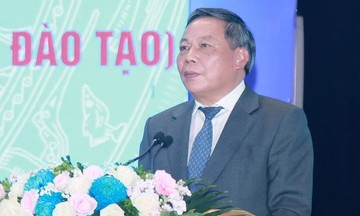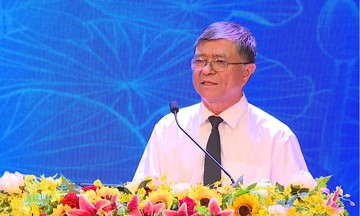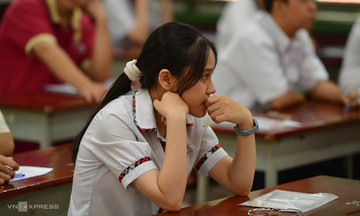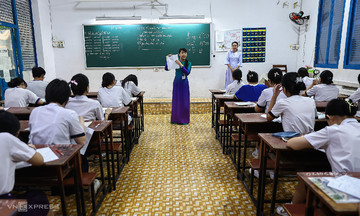The Department of Teachers and Educational Administrators, Ministry of Education and Training, reported this situation in a report on the education management staff at the commune and ward levels after the merger on 2/8.
Currently, Vietnam has more than 3,320 communes and wards, each with a Department of Culture and Society. This department is responsible for education and manages preschools, primary schools, and lower secondary schools (previously under district management).
According to regulations, each department has a maximum of two staff members responsible for education and training. However, Pham Tuan Anh, Deputy Director of the Department of Teachers and Educational Administrators, said that most localities currently have only one person in charge of education at the commune level, with a few places in Hanoi and Ho Chi Minh City having two or three. Meanwhile, the number of schools and students in many communes and wards can range from a few thousand to tens of thousands. Compared to the previous system, where a Department of Education and Training had at least 30 staff, Mr. Anh assessed that commune-level education staff are facing an excessive workload.
In addition, Ministry statistics show that in many localities, only about 20-30% of commune-level education officials have professional qualifications or prior experience in the field. The rest come from various departments before the merger, such as the Department of Ethnic Minorities and Religion, Justice, Youth Union, Agriculture and Environment, District Inspectorate, Home Affairs, and the Red Cross. Many lack pedagogical qualifications, with some having completely unrelated backgrounds, such as land management, animal husbandry, medicine, construction engineering, food industry, pharmacy, and general internal medicine.
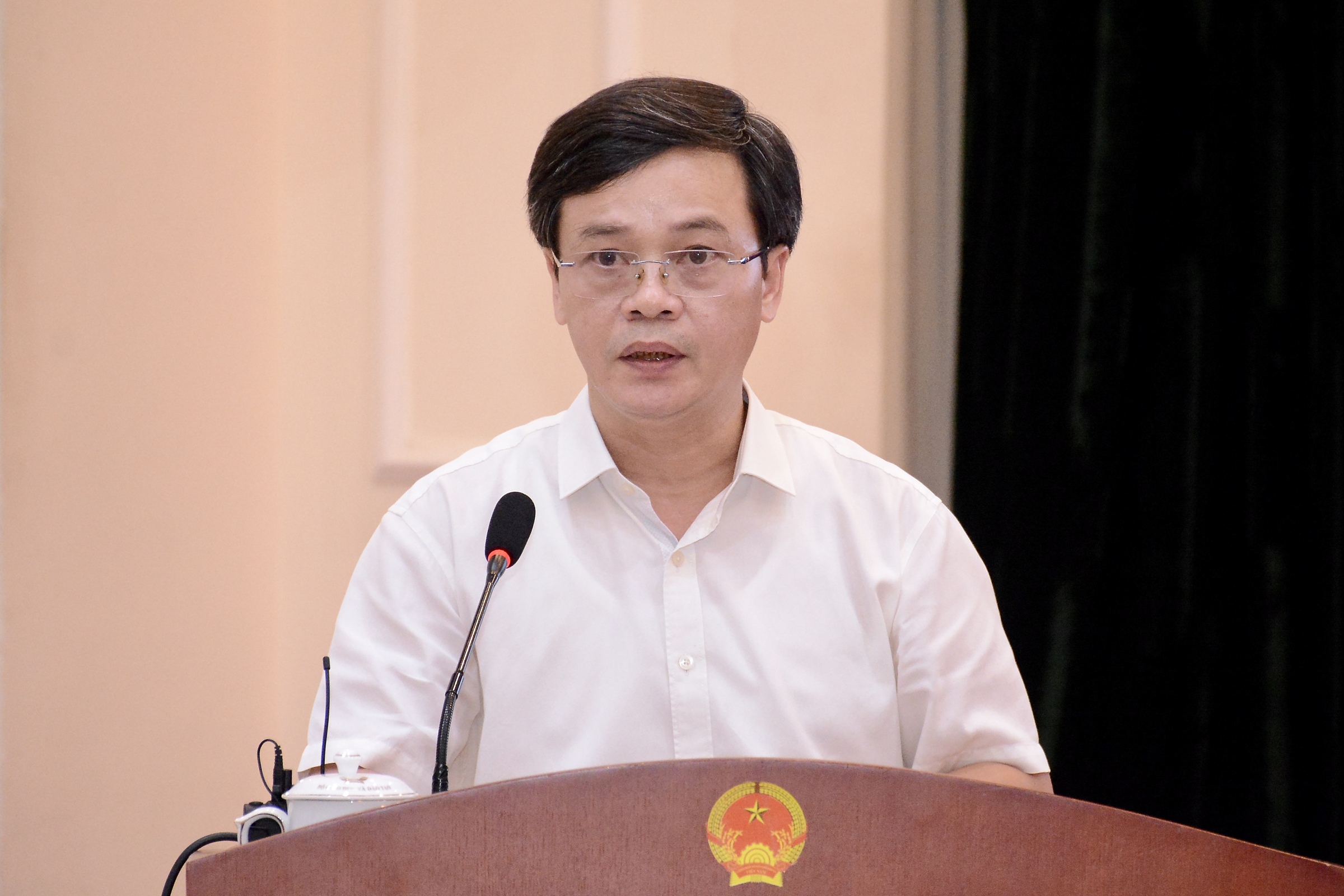 |
Mr. Pham Tuan Anh at the seminar on the afternoon of 2/8. Photo: Nguyen Manh/MOET |
Mr. Pham Tuan Anh at the seminar on the afternoon of 2/8. Photo: Nguyen Manh/MOET
Working outside their area of expertise and lacking experience causes difficulties for commune-level education officials, according to Nguyen Dinh Long, Head of the Department of Culture and Society of An Tuong ward, Tuyen Quang.
Nguyen Dieu Binh, a specialist at the Department of Culture and Society of Lang ward, Hanoi, agreed with this assessment. Having previously worked at the Dong Da District Department of Education and Training, Ms. Binh said she had expertise in education but previously only managed preschools.
"Now I have to manage primary and lower secondary schools as well, such as advising the ward chairman on implementing education programs for these levels, which is a significant challenge for me," Ms. Binh said.
At the seminar, many other specialists shared similar concerns. They argued that even those with experience in education face difficulties in their new roles, so those from unrelated fields will face even greater challenges.
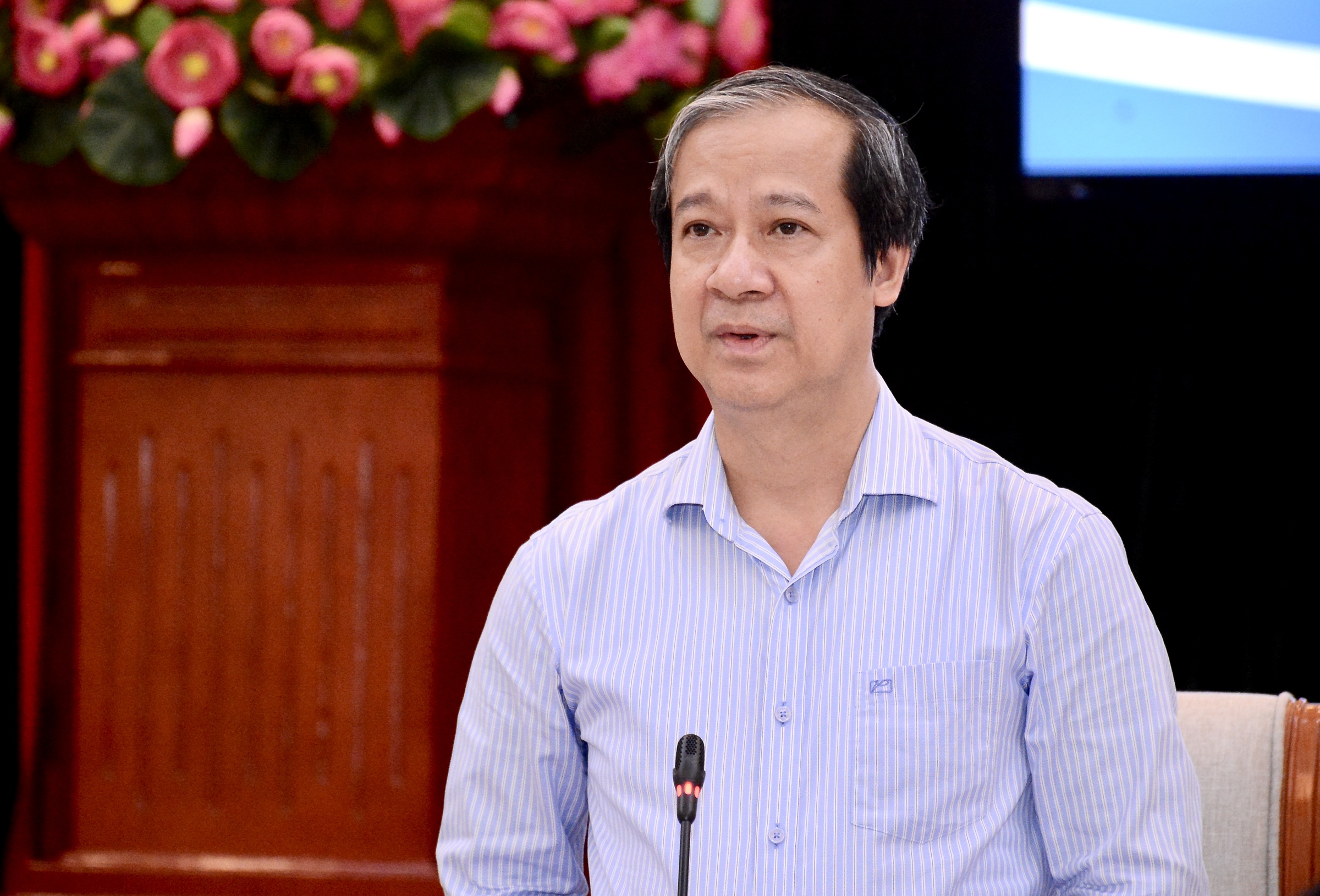 |
Minister Nguyen Kim Son at the seminar on the afternoon of 2/8. Photo: Nguyen Manh/MOET |
Minister Nguyen Kim Son at the seminar on the afternoon of 2/8. Photo: Nguyen Manh/MOET
According to the Ministry of Education and Training, this situation necessitates the standardization of commune-level education management staff to meet the operational requirements of the two-level model.
In the short term, the Department of Teachers and Educational Administrators has proposed that competent authorities allow the mobilization of principals, vice-principals, or key teachers to support the Department of Culture and Society, especially during peak periods like the upcoming school year.
This is also the solution Hanoi is currently implementing. Hanoi Department of Education and Training Director Tran The Cuong said that during the 45 days since the restructuring, teachers and principals have been mobilized to support commune-level education officials in digital transformation, improving IT skills, and familiarizing themselves with the specific activities of the sector.
Nghe An province is doing the same, according to Deputy Director Vo Van Mai. Vice-principals are being assigned to provide professional advice and support to commune-level education officials. In the coming time, the province will increase training and organize professional activities for these staff.
According to the delegates, once the system is stable, localities can consider new models, such as "inter-commune school clusters," establishing a joint management group for three to five nearby communes. This group would report directly to the Department for professional matters, have five or six staff members who are education experts, and specialize by educational level.
Concluding the seminar, Minister Nguyen Kim Son affirmed that focusing on supporting the commune level is an urgent requirement.
"In the system, this is the foundation. If the commune-level system is not well-consolidated, if this foundation malfunctions, we cannot expect the upper levels to operate well," Mr. Son emphasized.
The head of the education sector said that they will continue to listen and monitor the situation at the commune level. On 5/8, the Ministry will organize training for commune-level education officials nationwide, followed by the completion of a handbook, including situations related to operations at this level.
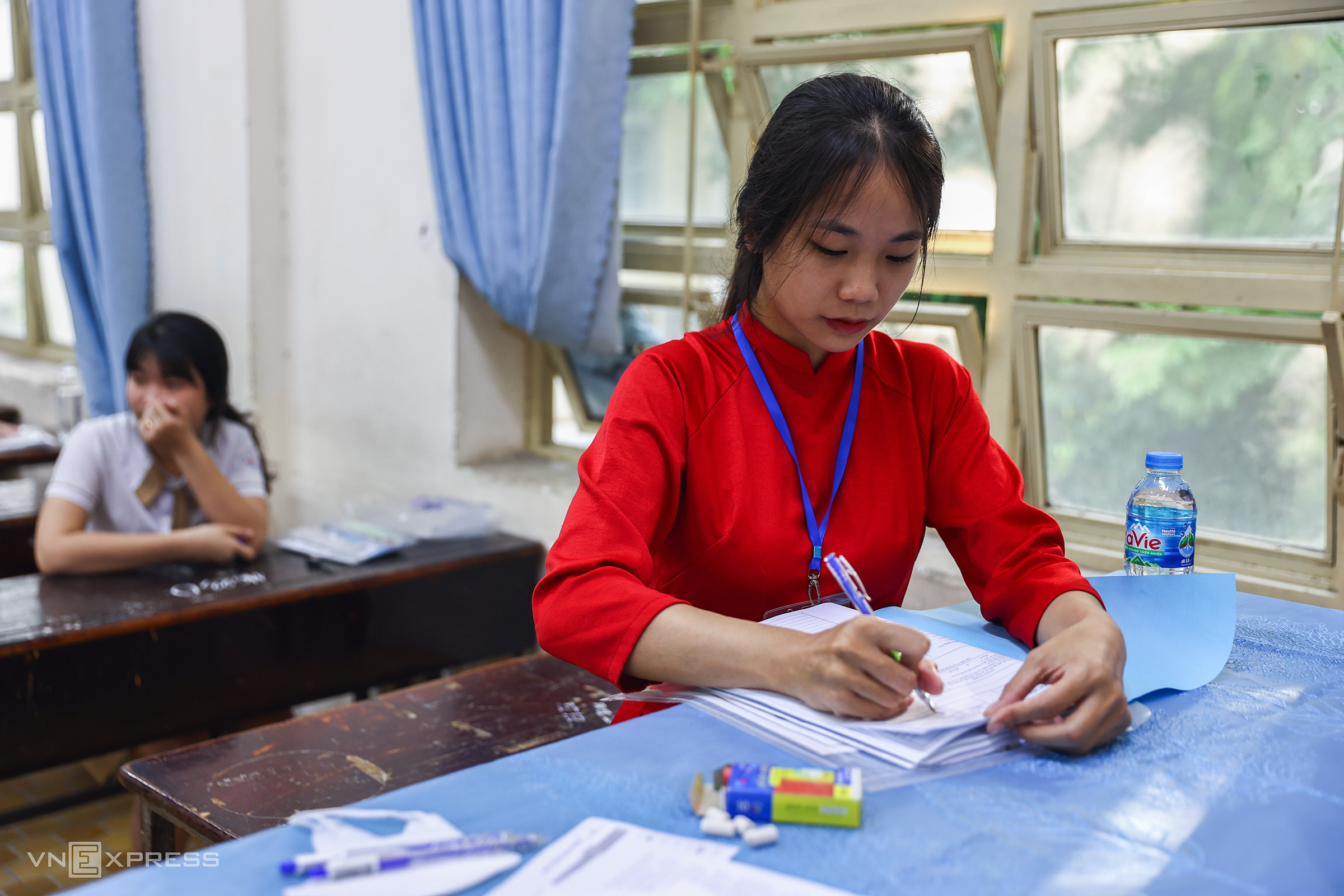 |
Proctors and teachers invigilating the public 10th-grade exam at Hoa Lu Lower Secondary School, Ho Chi Minh City, June 2025. Photo: Quynh Tran |
Proctors and teachers invigilating the public 10th-grade exam at Hoa Lu Lower Secondary School, Ho Chi Minh City, June 2025. Photo: Quynh Tran
Thanh Hang




